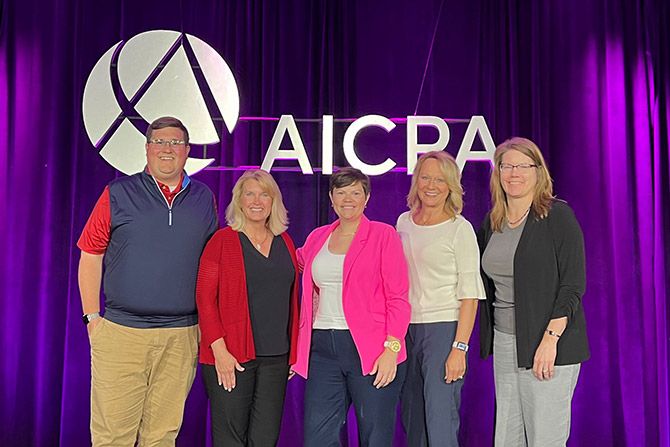The Corporate Transparency Act (CTA) went into effect Jan. 1, 20241 and is designed to combat tax fraud, money laundering, and other illicit activities that may otherwise be hidden by anonymous company ownership.2 The legislation requires most entities formed or doing business in the United States, called “reporting companies” for purposes of the CTA, to report Beneficial Ownership Information (BOI) of the company and disclose information about who created or registered the business to the U.S. Department of Treasury Financial Crimes Enforcement Network (FinCEN).3 FinCEN has estimated that the CTA will apply to 32.6 million reporting companies, with 5 million additional reporting companies being formed annually.4 Thus, although the CTA provides 23 exemptions to the reporting requirements, the majority of businesses, especially small businesses, will be required to disclose information regarding the company and people who have substantial control of the company.5
The constitutionality of the CTA is being challenged in several jurisdictions. However, these challenges are unlikely to result in widespread, substantive modifications to the BOI reporting requirements prior to 2024 year-end filing deadlines.
Current Year-End Deadlines
The CTA mandates that all reporting companies formed or registered to do business prior to Jan. 1, 2024, must file their initial BOI report by Jan. 1, 2025. Newly formed entities currently have 90 days from receiving notice of formation to file their BOI reports. That deadline is set to change to 30 days beginning Jan. 1, 2025. If any changes in beneficial ownership occur (e.g., the appointment or removal of a senior officer, changes to a beneficial owner’s name or address, etc.), reporting companies must update their BOI report to reflect those changes within 30 days.
Congressional Action to Extend or Repeal
In December 2023, the U.S. House of Representatives passed a bill to extend the deadline for reporting BOI.6 The bill would extend the reporting deadline for entities existing prior to Jan. 1, 2024, to Jan. 1, 2026, giving them an additional year to comply with the CTA’s filing requirements. It would also maintain the 90-day compliance period for newly formed entities indefinitely and alter the 30-day period for reporting changes to BOI to 90 days. The bill has been in the U.S. Senate’s Committee on Banking, Housing, and Urban Affairs since Dec. 13, 2023.7 It is still unclear whether this bill will be passed and extend the filing deadlines, but given the lack of congressional action since December, it seems unlikely. Reporting companies should be prepared to comply with the deadlines as they currently stand until instructed otherwise.
Additionally, two bills have been introduced in the House of Representatives and Senate to repeal the CTA entirely.8 However, Congress has not acted on either of these bills since they were introduced on April 29, 2024, and May 9, 2024, respectively.
Challenges to the CTA
- National Small Business Association v. Yellen
In November 2022, a lawsuit challenging the constitutionality of the CTA was filed in the District Court of Northern Alabama by the National Small Business Association (NSBA) against Secretary of the Treasury Janet Yellen.9 The complaint alleged that in enacting the CTA, Congress exceeded the constitutional limits of its power, therefore infringing on state sovereignty. In addition, the complaint alleged that the CTA violates rights of due process, privacy, freedom from government intrusion, and free speech.
In March of this year, the District Court of Northern Alabama ruled that the CTA, as currently written, exceeds Congress’ power to regulate interstate commerce. This is because the legislation is enforced on all non-exempt entities created by filing official documents with a secretary of state or similar office, regardless of those entities’ impact on interstate commerce.10 Likewise, the court found no justification or source of power for enacting the CTA in Congress’ powers to oversee foreign affairs or efficiently administer taxation. As a result, the court granted the Plaintiff’s relief and deemed it unconstitutional to enforce the CTA’s requirements against those Plaintiffs. The court did not rule on the constitutionality of the CTA in regard to whether it violates other rights granted in the First, Fourth, or Fifth Amendments.
In issuing its opinion, the District of Northern Alabama suggested that the CTA could be revised to be brought within the powers of Congress by limiting its application to entities whose activities “affect interstate or foreign commerce.” Thus, assuming that the CTA does not violate any other constitutional right outlined in the First, Fourth, or Fifth Amendments, the court indicated that legislation could be revised and re-enacted while maintaining coverage of most, if not all, of the reporting companies currently covered by the CTA.
As a result of the District of Northern Alabama’s ruling, FinCEN is enjoined from enforcing the CTA on the members of NSBA at this time. Because the granted relief did not contemplate a broader impact on reporting companies, the CTA remains enforceable against all other entities required to report under the CTA. In fact, FinCEN issued a statement saying that it will continue enforcing the CTA as to all other reporting entities not subject to the Alabama court’s injunction.11 The decision is currently on appeal to the Eleventh Circuit. - Other Current Lawsuits
Lawsuits in Ohio, Maine, Michigan, Texas, and Massachusetts followed, alleging similar constitutional violations of the First, Fourth, Fifth, Ninth, and Tenth Amendments. Similar to the Alabama case, the Ohio, Maine, and Michigan lawsuits would apply only to the Plaintiffs of those cases. Thus, regardless of the outcomes of those individual cases, other reporting companies’ CTA obligations would be unaffected.
The Texas and Massachusetts Plaintiffs, however, facially challenge the CTA, arguing that the legislation is not only unconstitutional as applied to the Plaintiffs, but as to all reporting companies.12 Thus, they seek to enjoin FinCEN from enforcing the CTA entirely. If the CTA is found to be unconstitutional in those cases, FinCEN would be enjoined from enforcing the CTA on any reporting company in the United States, effectively repealing the legislation. With each complaint that is filed, it becomes increasingly likely that the Supreme Court will have to provide a definitive answer as to the constitutionality of the CTA. However, given that these facial challenges were just filed in late May 2024, it is unlikely that the district courts, let alone the Supreme Court, will issue decisions in time to negate the Jan. 1, 2025, filing deadlines. - Requests for Relief by Trade Associations and Similar Organizations
Over 120 trade associations have requested that Congress grant temporary relief from the CTA by suspending its enforcement and extending filing deadlines.13 The American Institute of CPAs (AICPA) similarly requested that Congress suspend enforcement and extend compliance deadlines.14 In their request, the AICPA indicates that many reporting companies mistakenly believe they are no longer required to file their BOI report due to the ruling of the District of Northern Alabama and that this may result in businesses incurring significant monetary and criminal penalties.15
Implications for Reporting Companies & Their Advisors
Although there is some uncertainty surrounding the CTA, it is likely that the legislation is here to stay. Thirty countries already have similar beneficial ownership registries, including the UK, Germany, France, Italy, Japan, and Canada.16 More than 149 other countries have committed to implementing similar reporting requirements. Thus, even if courts in cases with the potential to broadly impact reporting companies, such as Texas and Massachusetts, find the CTA to be a product of legislative overreach, it is likely Congress would amend the legislation to bring it within its powers.
Extensions of reporting deadlines for compliance are possible pending the Senate passing the bill contemplating such an extension, but such extensions are unlikely. Considering the significant penalties businesses could face for failing to meet compliance deadlines, such as fines up to $10,000 and two years’ imprisonment,17 advisors should ensure their clients are aware of the reporting requirements and reporting companies should be prepared to file their BOIs by their respective deadlines as the legislation currently mandates.



Kaitlyn E. Mattox is a summer associate at Baird Holm LLP. Katie L. Kalkowski is an associate at the firm. Kalkowski focuses her practice on corporate transactions and general corporate matters. She counsels businesses of all sizes on a variety of matters, including entity formation, corporate governance, strategic transactions, and regulatory compliance. Hannah Fischer Frey is a partner at the firm, focusing on corporate transactions, federal and state tax planning issues, and tax-exempt matters. Fischer Frey has addressed complex partnership and corporate tax issues, including business reorganizations, private equity fund structuring, business succession planning, and tax planning in mergers and acquisitions. She has been closely involved in numerous federal and state tax examinations and audits. For more information, call (402) 344-0500 or email Kalkowski at kkalkowski@bairdholm.com or Fischer Frey at hfrey@bairdholm.com.
Endnotes
- Beneficial Ownership Information, Financial Crimes Enforcement Network, (2024), https://www.fincen.gov/boi.
- See 31 U.S.C §5336(e)(2)(B).
- 31 U.S.C. §5336(b)(2).
- Beneficial Ownership Information Reporting Requirements, 87 Fed. Reg. 59498, 59584 (Sept. 30, 2022).
- Beneficial Ownership Information, G.1, Financial Crimes Enforcement Network: frequently Asked Questions, (2024), Question C.2, https://www.fincen.gov/boi-faqs#C_2.
- Protect Small Business and Prevent Illicit Financial Activity Act, H.R. 5119 118th Cong. (2024).
- Actions – H.R. 5119 – 118th Congress (2023-2024): Protect Small Business and Prevent Illicit Financial Activity Act, H.R. 5119, 118th Cong. (2023), https://www.congress.gov/bill/118th-congress/house-bill/5119/all-actions?overview=closed#tabs.
- Repealing Big Brother Overreach Act, H.R. 8147 118th Cong. (2024); Repealing Big Brother Overreach Act, S. 4297 118th Cong. (2024).
- Complaint at 6, Nat’l Small Bus. United v. Yellen No. 5:22-CV-1448-LCB (N.D. Ala. Mar. 1, 2024).
- Nat’l Small Bus. United v. Yellen, No. 5:22-CV-1448-LCB, 2024 WL 899372, at *18-19 (N.D. Ala. March 1, 2024).
- Notice Regarding National Small Business United v. Yellen, NO. 5:22-cv-01448 (N.D. Ala.), Financial Crimes Enforcement Network (March 4, 2024), https://www.fincen.gov/news/news-releases/updated-notice-regarding-national-small-business-united-v-yellen-no-522-cv-01448.
- Complaint at 2, Black Economic Council of Massachusetts v. Yellen, No. 1:24-cv-11411 (D. Mass May 29, 2024) https://lawyersforcivilrights.org/wp-content/uploads/2024/05/BECMA-Complaint-Filed-May-29-2024.pdf; Lawsuit Challenges the Corporate Transparency Act, NFIB (May 28,2024) Lawsuit Challenges the Corporate Transparency Act.
- CTA Coalition Letter, (March 19, 2024) https://s-corp.org/wp-content/uploads/2024/03/CTA-Coalition-Letter-March-2024.pdf.
- AICPA letter, (April 3, 2024) https://www.cpa.com/sites/cpa/files/2024-04/2024_FinCEN_BOI_Delay_Enforcement_AICPA_State_CPA_Societies.pdf; AICPA letter, “Beneficial Ownership Information Reporting Deadline Extension for Reporting Companies Created or Registered in 2024 (Docket Number FINCEN-2023-0014; OMB Control Number 1506-0076),” (October 30, 2023) https://us.aicpa.org/content/dam/aicpa/advocacy/tax/downloadabledocuments/2023/boi-comments-on-proposed-90-day-extension-final.pdf.
- AICPA letter, (April 3, 2024) https://www.cpa.com/sites/cpa/files/2024-04/2024_FinCEN_BOI_Delay_Enforcement_AICPA_State_CPA_Societies.pdf.
- Beneficial Ownership Information Reporting Requirements, 87 Fed. Reg. 59498, 59499 (Sept. 30, 2022); Snapshot of Beneficial Ownership registries in G7 Countries, Athennian (March 2024) https://www.athennian.com/post/snapshot-of-beneficial-ownership-registries-in-g7-countries.
- Beneficial Ownership Information, Financial Crimes Enforcement Network: frequently Asked Questions, (2024), Question K.2, https://www.fincen.gov/boi-faqs#K_2.









